Language
- Deutsch
- English
- Español
- Français
- Italiano
- Nederlands
- Português
Currency
- AUD Australian Dollar
- CAD Canadian Dollar
- EUR Euro
- GBP Pound Sterling
- SGD Singapore Dollar
- USD US Dollar
- ZAR Rand

Anyone who identifies as part of the Lesbian, Gay, Bisexual, Trans and Queer (LGBTQ) community knows that travelling abroad to other countries is not as straightforward and as smooth a process as it is for those who are cisgendered and straight. There are still 64 countries in the world where it's illegal to be gay – with more than half of those countries in Africa. And if you are trans, the number of places you can travel in safely becomes significantly smaller.
It's not all doom-and-gloom though. There is a global trend toward acceptance of and decriminalising same-sex relations, and Africa is slowly but surely following suit. With that being said, there are plenty of destinations throughout the continent where LGBTQ families, couples, groups or singles can enjoy a gay-friendly African safari in comfort and safety.
If you're in search of gay African safari tours, you've certainly come to the right place! We know Africa inside out, and our award-winning Africa Safari Experts have been curating tailor-made African safaris since 1998 – we're even featured on Condé Nast Traveler’s expert list for LGBTQ+ travel. You will always receive unbiased advice based solely on first-hand experience from us – where safety is top priority, surpassed only by having an incredible time.
The below guide walks you through the best way to enjoy our African safari destinations as an LGBTQ+ person:
We at Go2Africa want there to be no ambiguity about where we stand on this issue. Go2Africa does not approve of any anti-LGBTQ laws or prejudiced public opinions on the continent. The company and every single one of its staff members, from our Africa Safari Experts to the CEO and support teams, have the utmost respect, acceptance and support for the LGBTQ community. No prejudice or hate is tolerated, and we strive to create an inclusive environment where people from all backgrounds, cultures, genders and sexualities are safe and comfortable.
For over two decades, Go2Africa has organised tailor-made safari itineraries for many LGBTQ clients, as well as educational trips for staff members who identify as part of the community. Our primary concern is the safety and comfort of all those who choose to travel with us. Every supplier and property we work with is run by people who are accepting and welcoming of all people and who employ staff that treat every guest with respect and kindness.
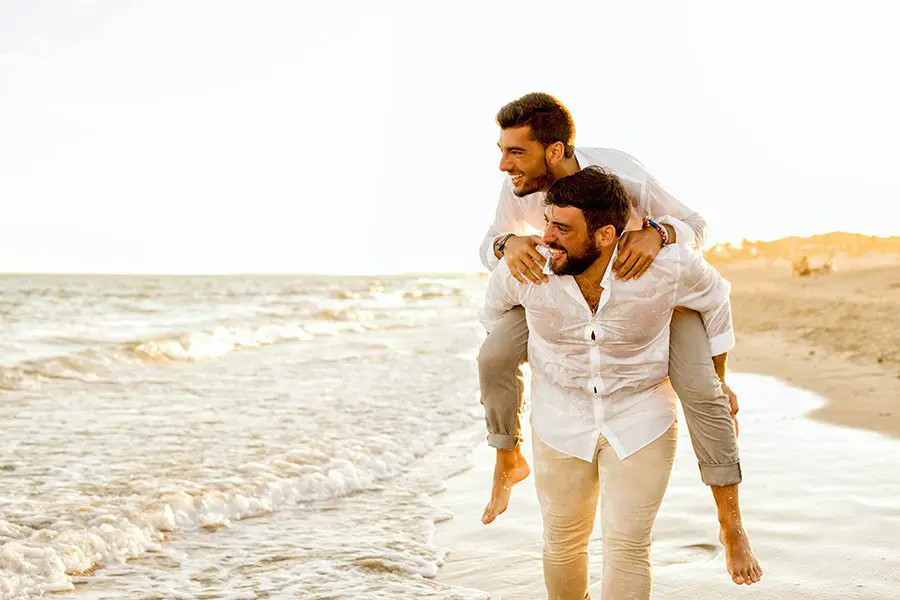
| Country | Same-sex Relationships | Same-sex Marriage | Adoption by Same-sex Couples | Sexual Orientation Anti-discrimination | Gender Identity/Expression
Laws |
| South Africa | Legal | Legal | Legal | Constitution bans all anti-gay discrimination | Anti-discrimination laws include gender identity
Legal gender may be changed after surgical or medical treatment |
| Botswana | Legal | Illegal | Illegal | Bans all anti-gay discrimination | Legal gender change is a constitutional right |
| Rwanda | Legal | Illegal | Illegal | None | None |
| Congo | Legal | Illegal | Illegal | None | None |
| Mozambique | Legal | Illegal | Illegal | Bans some anti-gay discrimination | None |
| São Tomé and Príncipe | Legal | Illegal | Illegal | None | None |
| Madagascar | Legal | Illegal | Illegal | None | None |
| Seychelles | Legal | Illegal | Illegal | Bans some anti-gay discrimination | None |
| Namibia | Male same-sex relationships are illegal, but the law is not enforced | Illegal | Illegal | None | Gender marker can be legally changed |
| Kenya | Illegal | Illegal | Illegal | None | None |
| Tanzania | Illegal | Illegal | Illegal | None | None |
| Zanzibar | Illegal | Illegal | Illegal | None | None |
| Uganda | Illegal | Illegal | Illegal | None | None |
| Mauritius | Illegal | Illegal | Illegal | Bans all anti-gay discrimination | None |
| Malawi | Illegal | Illegal | Illegal | None | None |
| Zambia | Illegal | Illegal | Illegal | None | None |
| Zimbabwe | Illegal | Illegal | Illegal | None | None |
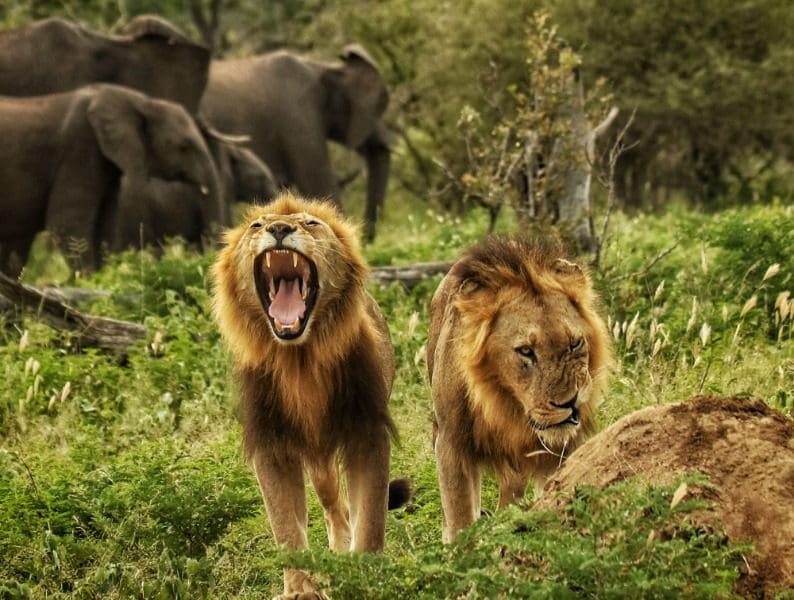
In 2006, South Africa became only the fifth country in the world (and the first in Africa) to legalise same-sex marriage. And if you think that fact is impressive, wait until you find out that The Rainbow Nation, as it's affectionately known, was the very first country anywhere on the globe to ban discrimination based on sexual orientation in 1996.
Now more than two decades later, South Africa's progressive policies and liberal constitution have cemented its place as the most LGBTQ-friendly nation on the continent, as well as one of the most sought-after gay travel destinations in the world. This only makes sense since the country is home to one of the largest populations of LGBTQ people.
The big urban cities of Cape Town and Johannesburg are home to a vibrant gay culture that is welcoming to any and all who identify as LGBTQ+. Cape Town in particular is considered worldwide to be the LGBTQ hub of Africa. From charming sidewalk cafes and an electric nightlife to majestic mountains and Blue Flag beaches, the gay Cape Town and Johannesburg scenes are must-visits for LGBTQ travellers.
An urban safari in South Africa's cosmopolitan gay capitals pairs well with a more traditional one in the untamed wilderness. When visiting South Africa, LGBTQ travellers are sure to feel safe and comfortable when on safari in wildlife destinations like the Kruger National Park, Madikwe Game Reserve and Pilanesberg National Park.
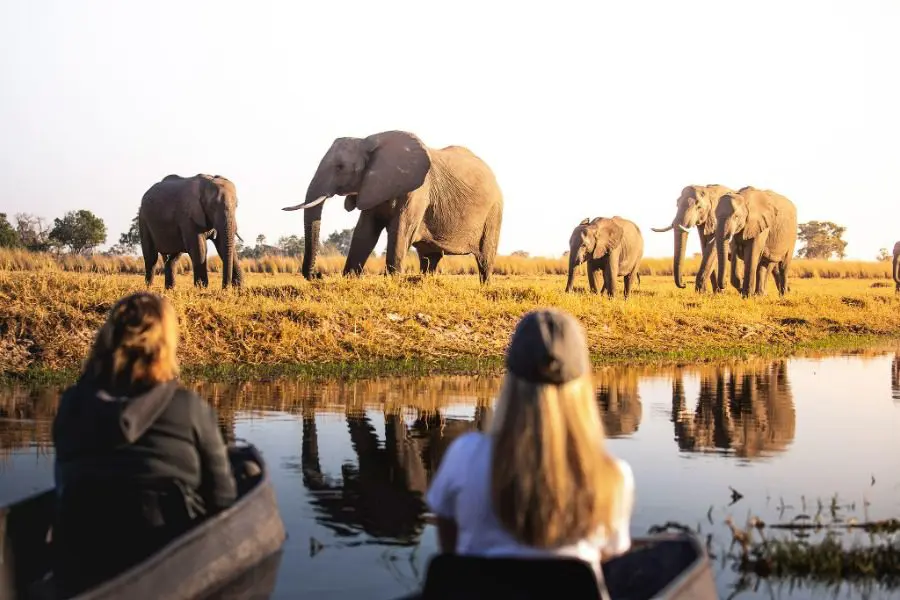
Same-sex relationships have been legal since 2019 in Botswana which is one of the best destinations for LGBTQ travel in Africa. But even before it was legalised, Botswana's tourist destinations were always welcoming to LGBTQ travellers, and continue to be to this day.
If you still have concerns about the safety levels of Botswana's LGBTQ travel scene, you can take comfort in knowing that this diverse wildlife destination offers the ultimate privacy. Whether you're enjoying a safari in the Okavango Delta, Chobe's private reserves or the Kalahari, you will hardly encounter other travellers while in the wilderness.
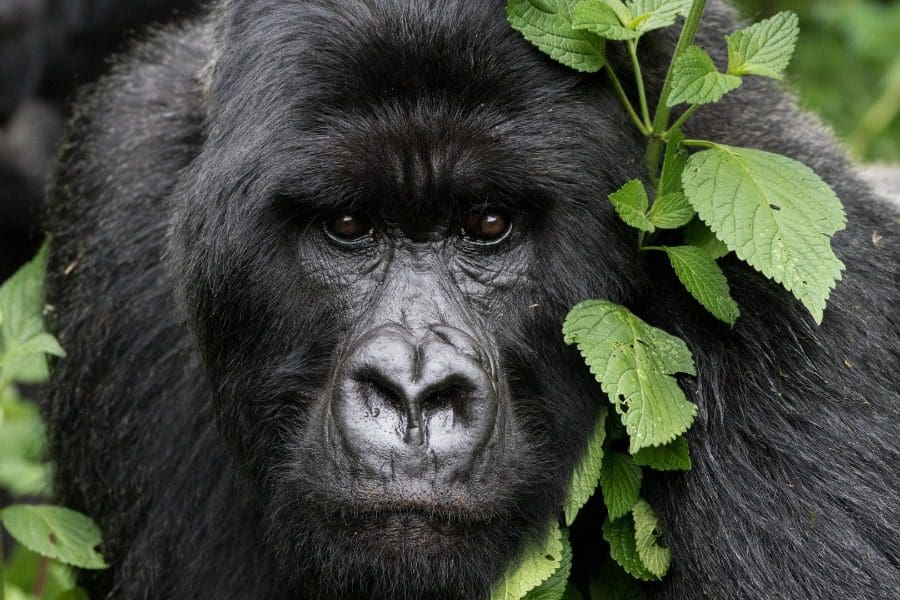
In Rwanda, same-sex relationships are legal and the country's tourism field is widely accepting and welcoming of LGBTQ travellers. The East African nation is the only country in the region without any anti-homosexuality laws and is seen as somewhat of a haven for LGBTQ citizens alienated in neighbouring countries.
And it's not only in tourist spaces where LGBTQ people are being increasingly accepted. Slowly but surely, tolerance in Rwanda's urban areas is increasing, but in the more conservative, rural areas, it's still considered taboo. So, when travelling outside of your safari lodge or camp, it's highly suggested that you stay discreet and not display any public affection when around the locals.
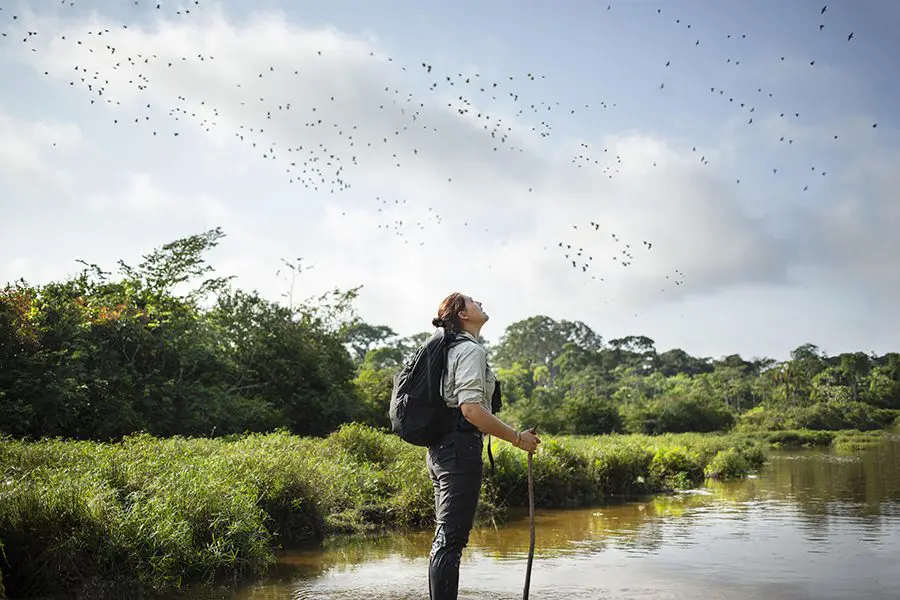
It might come as a surprise to many that the Republic of the Congo, also known as the Congo or Congo-Brazzaville, has a more liberal view of LGBTQ people. Same-sex relationships are legal throughout the country. However, the law does not always reflect public opinion.
Tourist destinations in the Congo, like the gorilla-laden rainforests of Odzala-Kokoua National Park or the vibrant capital city of Brazzaville, are perfectly safe for LGBTQ travellers. But when in the vicinity of locals, you might prefer to keep a low profile to avoid any uncomfortable situations.
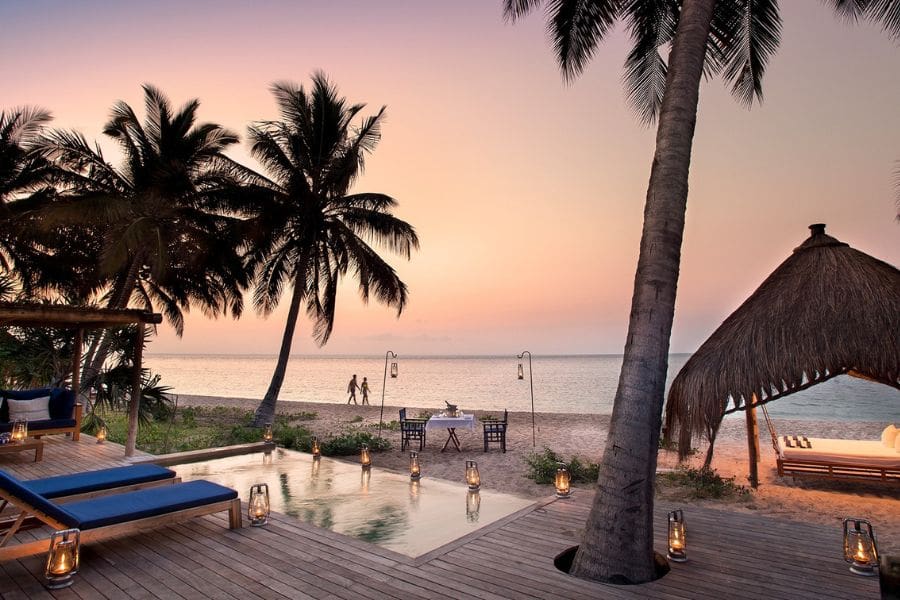
A common trend you'll find throughout Africa is that ex-Portuguese colonies lean more toward a liberal attitude toward LGBTQ people than their counterparts. Although this is far from a blanket statement (for example, South Africa is the most LGBTQ-friendly country on the continent and is not a former Portuguese colony), Mozambique certainly falls into this category.
In 2007, the Mozambican government introduced legislation that protects gay, lesbian and bisexual employees from discrimination in the workplace. They took it a step further in 2015 and legalised same-sex relationships in June 2015 – it's worth noting that this legislation was passed with very little resistance from the public.
As with every country, there is still some prejudice in Mozambique. It's mostly common in traditional, rural communities where locals are of a conservative nature. When in the remote parts of Mozambique, it's best to avoid public displays of affection. And this goes for any couple no matter their sexual orientation, as it is severely frowned upon. However, the more cosmopolitan regions of Mozambique, like Maputo, are more open-minded and prejudice is far less common.
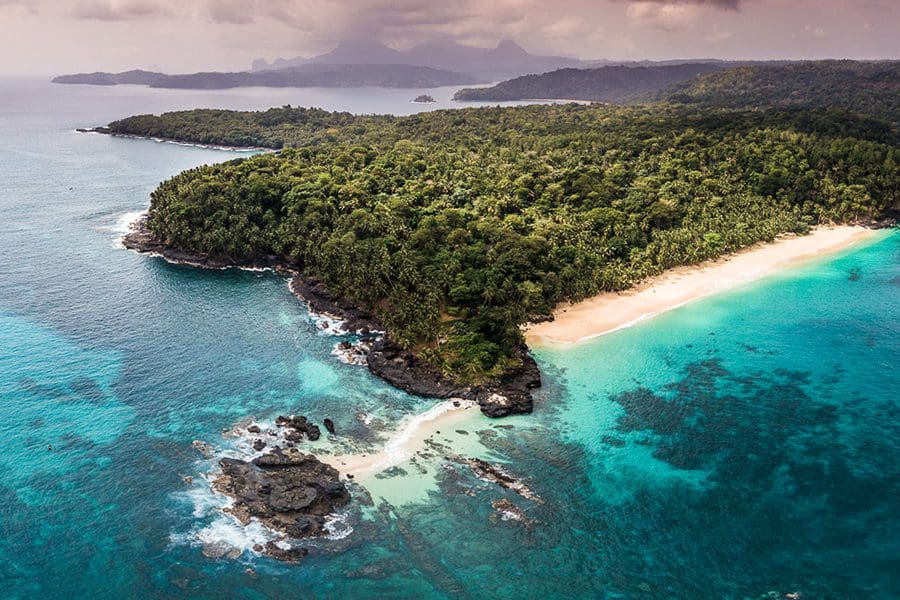
São Tomé and Príncipe is a true hidden gem that lies off the beaten path of Africa's more well-known holiday island routes. And after legalising same-sex relationships in 2012, it's also a great destination for LGBTQ travellers. Lying just off the coast of West Africa, these lesser-known African islands are a true treat for any nature lover.
Emerald-coloured rainforests and paradisiacal beaches are par the course when staying at one of São Tomé and Príncipe's luxury resorts. Your days will be spent canoeing down secluded mangrove rivers, exploring crumbling cocoa plantations, enjoying remote beach picnics and snorkelling from boats in the bays.

Made famous by the animated film of the same name, Madagascar is indeed home to thick rainforests, exotic beaches and many lemurs that strongly resemble King Julien himself. What's more is that same-sex relationships are legal, and Madagascar is very gay-friendly for all those over the age of 21 – those who are younger and identify as LGBTQ face a prison sentence or hefty fine.
There is no place on earth like Madagascar. Expect a melting pot of culture, unique wildlife, diverse landscapes and delicious cuisine, whether you're in the capital, Antananarivo, or in Madagascar's most popular tourist spot, Nosy Be – a great place for water-based activities, like kite surfing, swimming and diving.
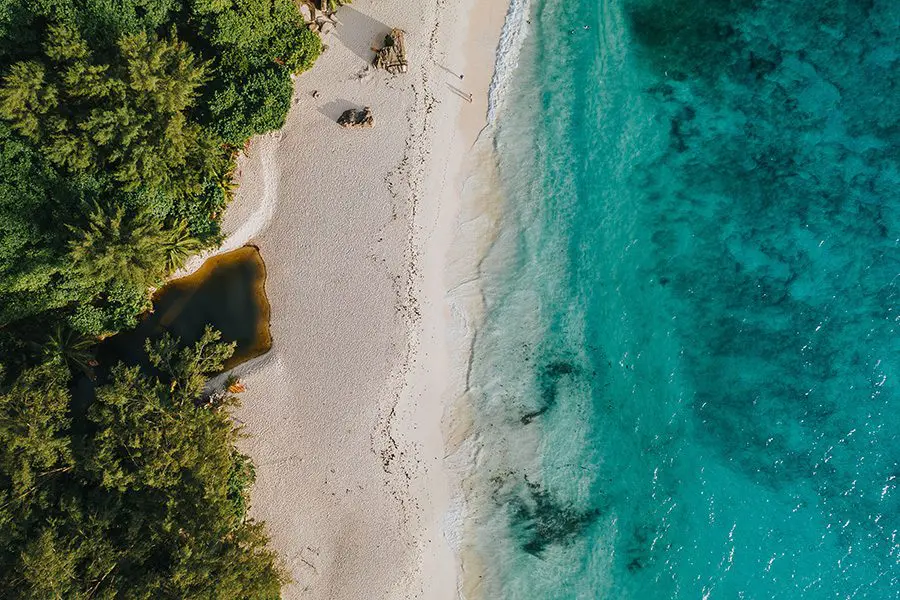
Seychelles is renowned for having some of the best beaches in the world, warm ocean water and year-round sunny weather. Same-sex relationships have also been legal since 2016, with some anti-gay discrimination legislation in place. This means you can walk down the beach hand-in-hand with your partner without any worries – but practice discretion around the locals as they might disapprove.
This fairly progressive tropical island is one the most gay-friendly holiday destinations Africa has to offer. Enjoy a quintessential beachside vacation sipping drinks on the soft sand, snorkelling or diving in the warm cerulean water, or immersing yourself in nature on walks through the thick rainforests.
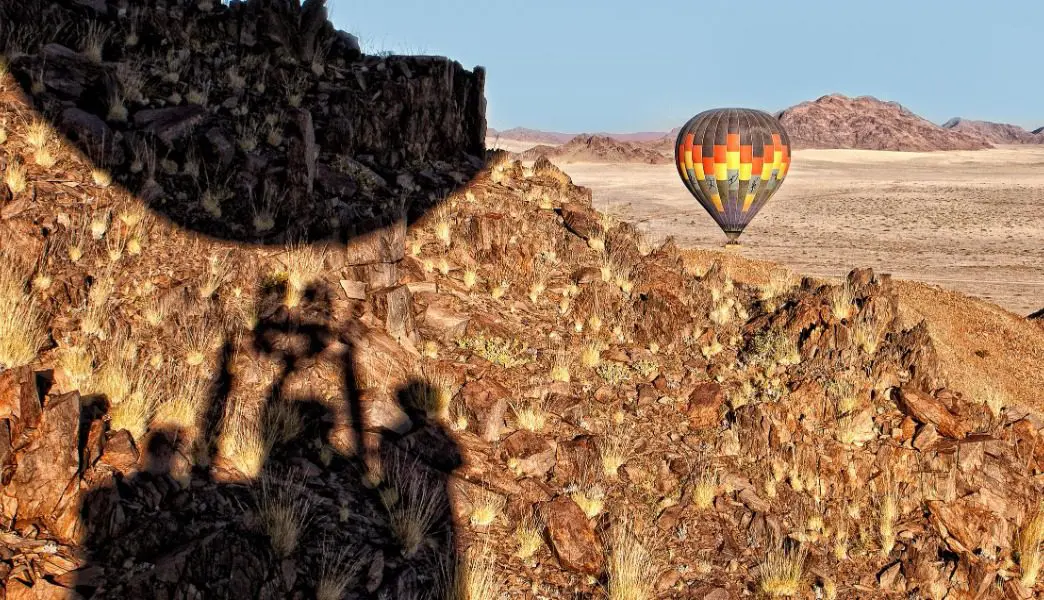
Depending on which link you click, Namibia can come across as a very anti-LGBTQ country. Although there is definitely some truth to this and, like all places, some locals are prejudiced, LGBTQ travellers will be perfectly safe in Namibia – we do advise that you practice discretion and avoid public displays of affection when around locals or venturing beyond the lodge or campground.
Female same-sex relationships are legal, but male same-sex relationships have been outlawed since 1920. Do not panic though – this law is not enforced at all, and male same-sex relationships are treated as legal. Namibians who identify as a trans person can legally change their gender marker under the Births, Marriages and Deaths Registration Act 81 of 1963.
Famous for its towering sand dunes and burnt-sienna desertscape, Namibia is an out-of-this-world beautiful country filled with stunning luxury lodges and camps, diverse desert-adapted animals and adventurous activities. From scaling Big Daddy and enjoying a 4×4 safari through the dunes in Sossusvlei to thrilling game drives in Etosha National Park and visiting the hauntingly beautiful shipwrecks lining Skeleton Coast, Namibia is filled with opportunities you won't soon forget.
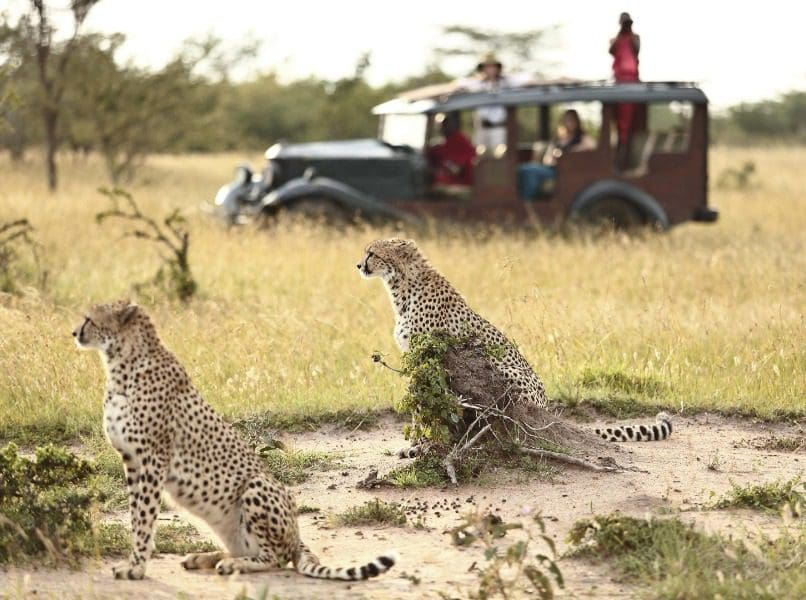
Kenya isn't considered to be an LGBTQ-friendly destination. Same-sex relationships have been illegal in Kenya since 1897 and come with a penalty of up to 14 years in prison. Furthermore, the majority of Kenyan society is conservative and religious, which means it's a taboo subject in many of the country's cities and towns.
But despite the unprogressive lay of the land, the question remains: is Kenya safe for LGBTQ travellers? Tourism plays a significant role in Kenya's economy and as a result, LGBTQ travellers are accepted in tourist spots. As long as you avoid public displays of affection, practice discretion and respect the local culture, LGBTQ travellers should come up against no issues while visiting Kenya.
Although progress is slow, the more urban areas of Kenya, like its capital, Nairobi, have gay-friendly spaces. The city has a vibrant nightlife scene that is seeing more and more bars introducing LGBTQ-safe zones or rooms.
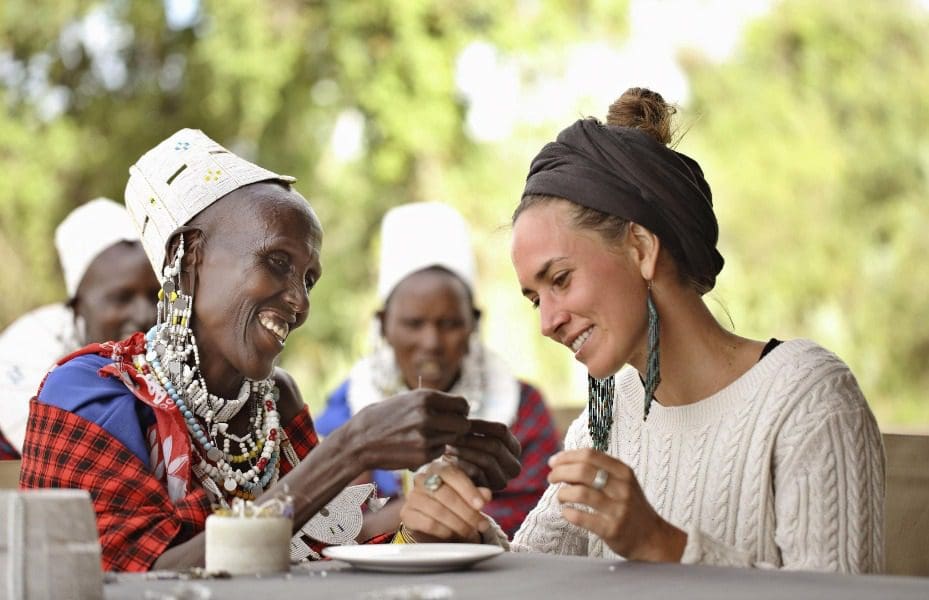
Given the country's less-than-inviting constitution and social outlook, a question often asked is: is Tanzania safe for LGBTQ travellers? And the short answer is yes, it is – but it doesn't come without its disclaimers.
Same-sex relationships are illegal in Tanzania and have been since 1899, with a penalty of up to life imprisonment. Tanzania's legislation leans heavily into conservativeness and religion – even heterosexual couples who are found to engage in oral intercourse and sodomy are punished. And public opinion does not stray far from the law. The vast majority of Tanzanian residents view homosexuality and all other LGBTQ identities as taboo.
Fortunately, it's not all bad news! Many LGBTQ travellers from all over the world have enjoyed seeing the Great Wildebeest Migration in the Serengeti and searching for the Big 5 inside an extinct volcano, the Ngorongoro Crater. Like Kenya, tourist areas and accommodations are gay-friendly and welcoming to LGBTQ travellers. As long as you remain discreet and refrain from public displays of affection when in public areas, you should run into no trouble while in Tanzania.
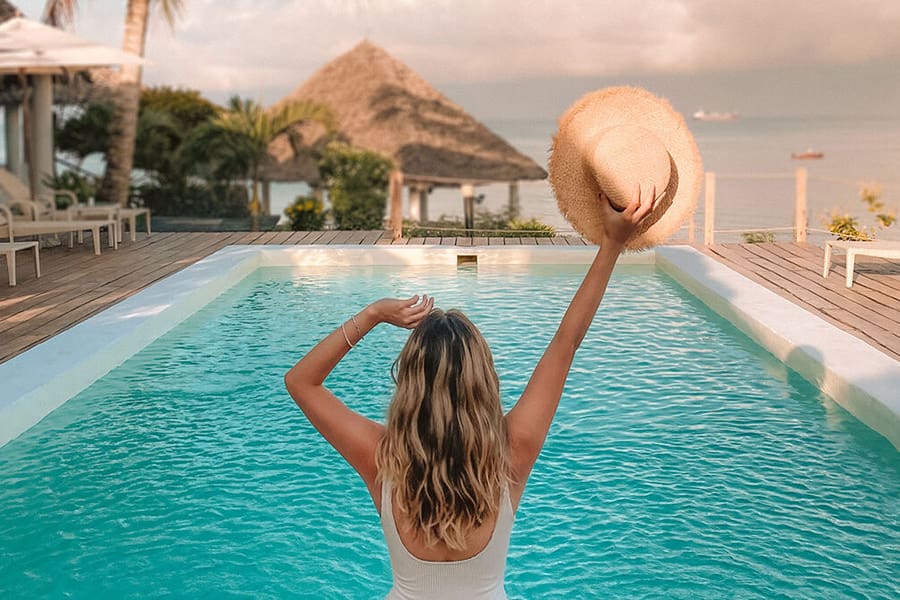
Being a sovereign state of Tanzania, Zanzibar carries the same laws and social attitude as the East African country. In fact, same-sex relationships have been illegal on the island since 1864 – which is 35 years before Tanzania's legislation came into effect.
Despite the island territory's disheartening outlook, none of the anti-LGBTQ laws has impacted travellers. And when in tourist areas and accommodations, staff are accustomed to interacting with people from all walks of life and rarely raise an eyebrow. Like anywhere in the world, there's always a chance that someone makes their prejudice known. But it's an extremely rare occurrence.
To always ensure your safety and comfort, it's recommended to be conservative around the locals or in public areas.
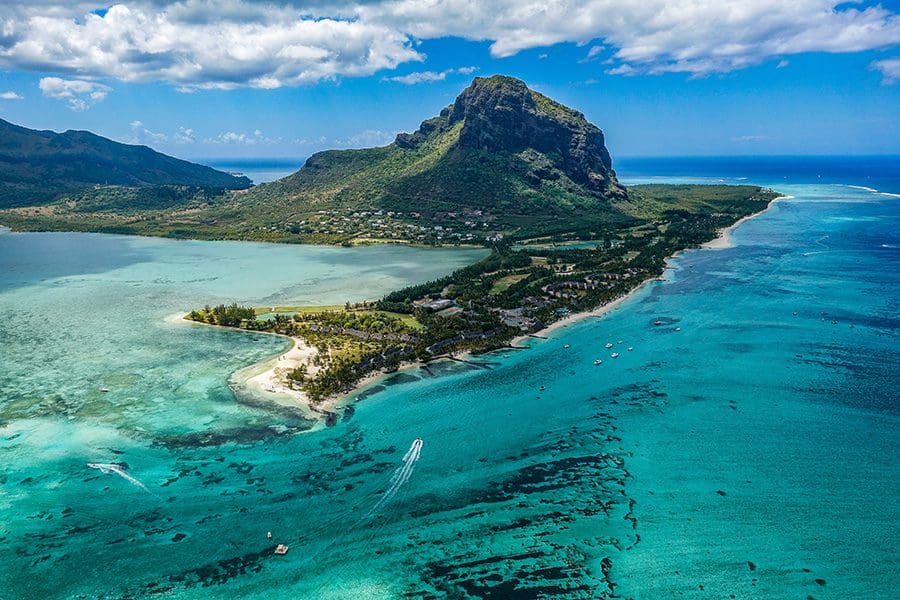
Mauritius is one of the most popular island destinations in Africa. Thousands of visitors from every corner of the globe flock to the golden shores and azure water of this paradise. Luxury lodges and opulent resorts are par the course, while water-based activities like water-skiing, snorkelling, windsurfing and parasailing fill your days with thrilling adventure. What's not to love about Mauritius?
Well, it's anti-LGBTQ laws for one. Male same-sex relationships are outlawed in the island country but is hardly enforced. The law is more of a forgotten relic of the past. Legislation also does not necessarily reflect public opinion. Mauritius might not recognise same-sex marriages in a court of law, but progress is being made. Discrimination in certain instances, such as employment, against LGBTQ residents is banned in Mauritius. And the island's population is increasingly becoming more accepting and welcoming towards non-heterosexual and genderfluid people.
LGBTQ travellers visiting Mauritius have nothing to worry about at all. Tourist areas on the island are very gay-friendly and have been for many years. When on the property of the lodge or resort you're booked into, anything goes. But when venturing outside of these spaces, it's better to play it safe and refrain from public displays of affection.
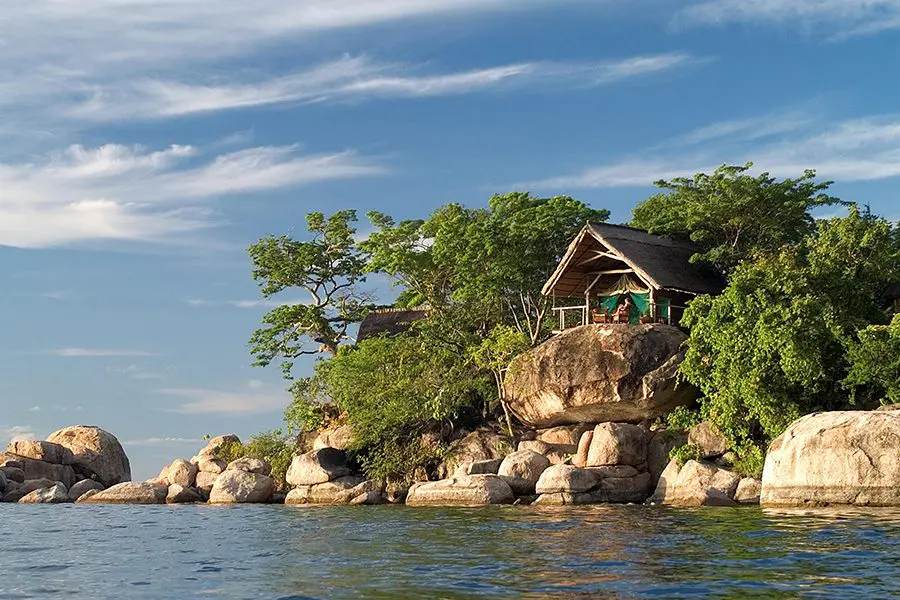
Malawi is one of Africa's lesser-known safari gems and is a great destination for those seeking an adventure that's off the beaten path. However, it's not the most gay-friendly. Same-sex relationships have been illegal since 1981, with males facing up to 14 years imprisonment and females up to 5 years.
The good news is that anti-gay laws are rarely enforced these days and Malawians are slowly becoming more tolerant of LGBTQ people. In larger cities and towns like Lilongwe, residents' views are starting to lean more liberal. But change is protracted, so it's advised to be mindful of local customs and the social climate and practice discretion when in public areas.
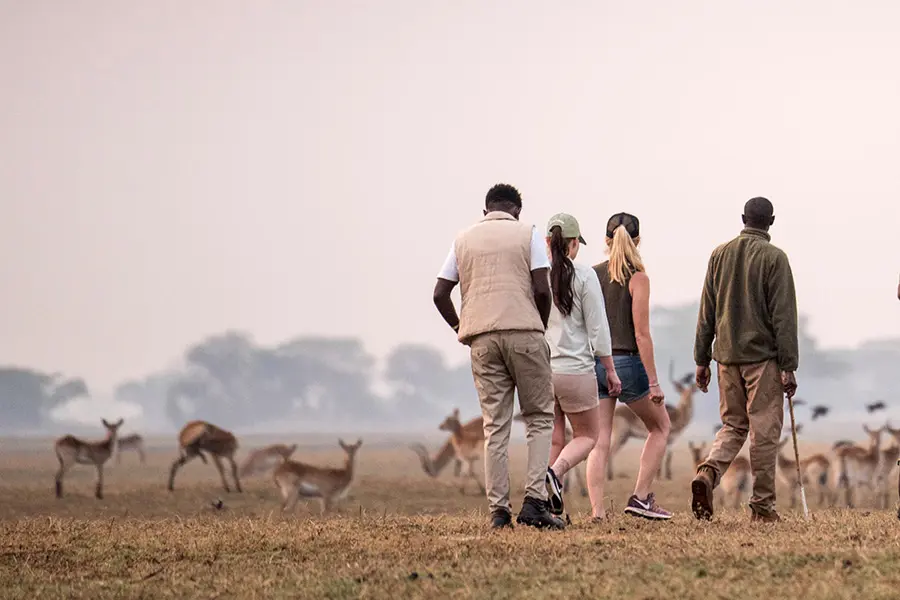
In 1911, while under British rule in Zambia, same-sex relationships were outlawed and remain in legislation to this day. The anti-gay rhetoric of Zambia's constitution has become ingrained in public perception as well. Zambians are deeply conservative and religious, especially in the more rural areas, and are intolerant of those who identify as LGBTQ.
Despite the negative views of the public, tourist destinations in Zambia are welcoming toward LGBTQ travellers. Tourism is important to both the Zambian government and its people, and as a result, they will warmly accept any and all visitors, no matter their background. This is particularly true in nature's playground, Victoria Falls, which is frequented by LGBTQ travellers and it's highly unlikely that you'll face any issues during your visit.
It is advised to avoid public displays of affection when at the airport and in public spaces.
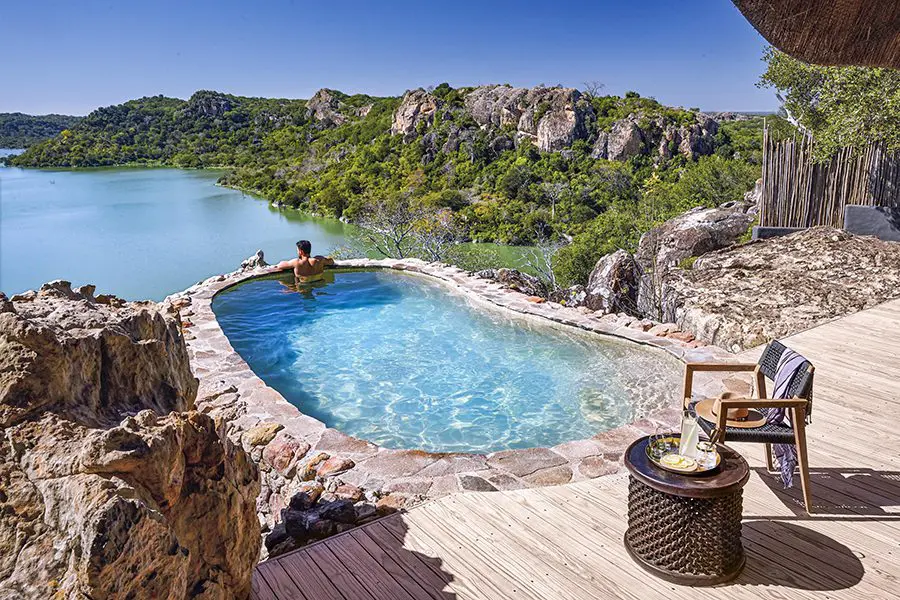
Like Zambia, Zimbabwe's anti-LGBTQ legislature was introduced by the British in 1891, when the country was still referred to as Rhodesia. The Southern African nation changed its name but held onto its homophobic laws. Over the years, Zimbabwe's intolerance of LGBTQ people was exacerbated by the anti-gay rhetoric of Robert Mugabe, the late former president.
After Mugabe was ousted from power in 2017, things became a little easier for LGBTQ people in the country. Zimbabwe still has a long way to go in becoming a more progressive country, but LGBTQ travellers will have no problems when travelling around this beautiful safari destination. Whether you're out on game drives spotting the various wildlife in Hwange and Mana Pools National Parks or enjoying all that Africa's Adventure Capital has to offer in Victoria Falls, LGBTQ travellers can rest assured that they will be safe and comfortable when on safari.
But as always, practice caution by being discreet and refraining from public displays of affection when in public areas and around locals.
Chat with someone who's been there. Get in touch with one of our Africa Safari Experts to help tailor-make a safari that's right for you: